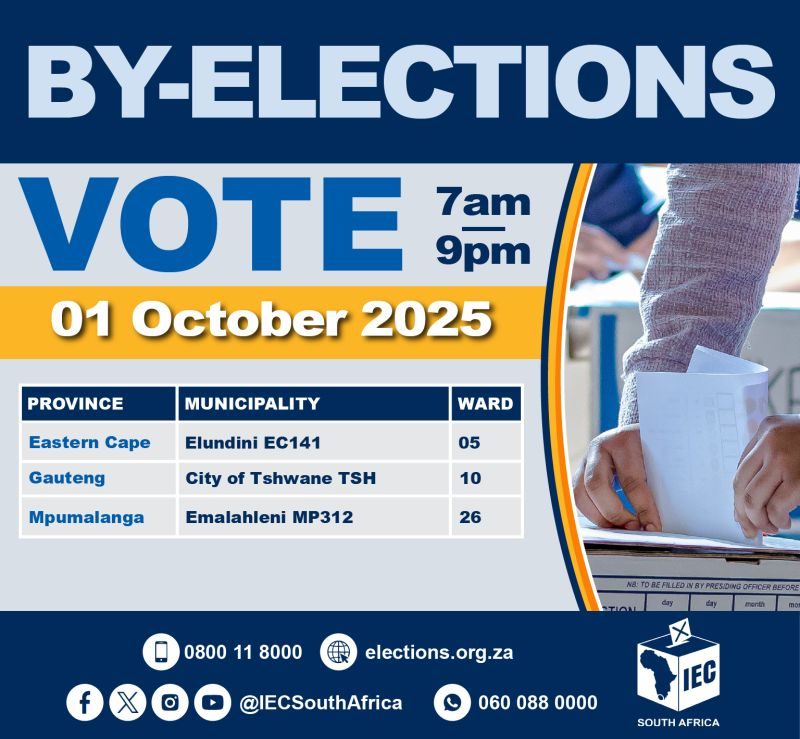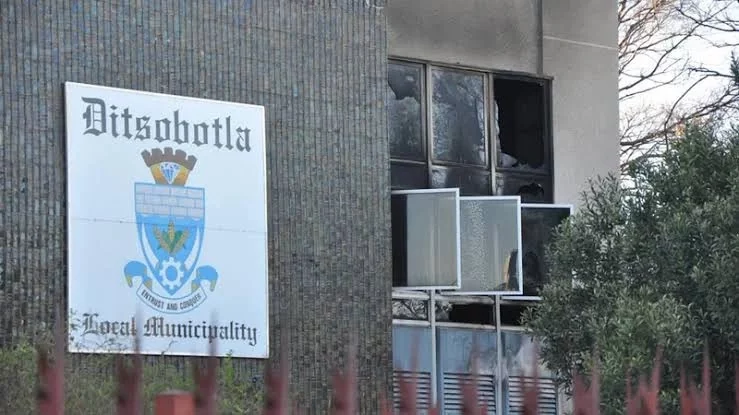- Coalitions Tracker
ACCORD Coalitions Tracker
Providing centralised information about the latest developments from South Africa's local government coalitions
Ditsobotla
The Ditsobotla Local Municipality is a Category B municipality situated within the Ngaka Modiri Molema District in the North West Province.
Endumeni
Endumeni Local Municipality is an administrative area in the Umzinyathi District of KwaZulu-Natal in South Africa and means “a place of thunderstorm” in isiZulu. Being at the heart of the KwaZulu- Natal battlefields, Endumeni is a dynamic, developmenta …
Nala
The Nala Local Municipality is situated in the northern part of the municipal region of the Lejweleputswa district council.
Mthonjaneni
The Mthonjaneni Local Municipality is a Category B municipality situated within the northern coastal region of KwaZulu-Natal, and is part of the King Cetshwayo District.
Mtubatuba
Mtubatuba Municipality is one of five Category B Municipalities within the Umkhanyakude District Municipality.
uMhlathuze
The City of uMhlathuze Local Municipality is a Category B municipality situated within the King Cetshwayo District on the north-east coast of KwaZulu-Natal.
Okhahlamba
Okhahlamba Local Municipality is a Category B municipality situated in the uThukela District of KwaZulu-Natal.
KwaDukuza
The KwaDukuza Local Municipality is a Category B municipality located within the iLembe District in the KwaZulu-Natal Province.
Inkosi Langalibalele
The Inkosi Langalibalele Local Municipality is a Category B municipality situated within the uThukela District in the KwaZulu-Natal Province.
Alfred Duma
The Alfred Duma Local Municipality is a Category B municipality in the uThukela District within the region of northern KwaZulu-Natal.
uMhlabuyalingana
The uMhlabuyalingana Local Municipality is a Category B municipality situated within the uMkhanyakude District in the KwaZulu-Natal Province.
Siyancuma
The Siyancuma Local Municipality is situated within the Pixley Ka Seme District of the Northern Cape Province.
Kareeberg
The Kareeberg Local Municipality is a Category B municipality situated within the Pixley Ka Seme District in the Northern Cape Province.
!Kheis
The !Kheis Local Municipality is a Category B municipality situated within the ZF Mgcawu District in the Northern Cape Province.
Kgatelopele
The Kgatelopele Local Municipality is a Category B municipality found in the Northern Cape Province within the ZF Mgcawu District.
Nama-Khoi
The Nama Khoi Local Municipality is a Category B municipality situated on the north-western side of the Northern Cape Province in the Namakwa District.
Hantam
The Hantam Local Municipality is a Category B municipality situated within the Namakwa District in the Northern Cape Province.
Karoo Hoogland
The Karoo Hoogland Local Municipality is a Category B municipality situated in the Namakwa District of the Northern Cape Province.
Siyathemba
The Siyathemba Local Municipality is a Category B municipality situated within the Pixley Ka Seme District of the Northern Cape Province.
Thembelihle
The Thembelihle Local Municipality is a Category B municipality situated in the heart of the Karoo in the Pixley Ka Seme District of the Northern Cape Province.
Gamagara
The Gamagara Local Municipality is a Category B municipality found in the John Taolo Gaetsewe District within the Northern Cape Province.
Rand West
The Rand West City Local Municipality is a Category B municipality situated within the borders of the West Rand District in the Gauteng Province.
Merafong
The Merafong City Local Municipality is a Category B municipality situated within the West Rand District in the Gauteng Province.
Lesedi
The Lesedi Local Municipality is a Category B municipality situated in the Sedibeng District in the Gauteng Province.
Emfuleni
The Emfuleni Local Municipality is a Category B municipality situated in the Sedibeng District in the Gauteng Province
Mogale City
The Mogale City Local Municipality is a Category B municipality located within the West Rand District in the Gauteng Province.
KouKamma
The Koukamma Local Municipality is located in the Sarah Baartman District Municipality, along the Indian Ocean coastline in the south-western part of the Eastern Cape Province.
Dr. Beyers Naude
Dr Beyers Naudé Local Municipality is a Category B municipality situated in the Sarah Baartman District in the west of the Eastern Cape Province.
Nelson Mandela Bay
Nelson Mandela Bay Municipality is a global city that is governed by an inclusive and innovative administration, focused on sustainable service delivery, socio-economic development, infrastructure development, local and regional integration through comprehensive initiatives.’
Thabazimbi
The Thabazimbi Local Municipality is a Category B municipality located within the Waterberg District in the south-western part of the Limpopo Province.
Modimolle-Mookgophong
The Modimolle-Mookgophong Local Municipality is a Category B municipality situated within the Waterberg District in the Limpopo Province.
Steve Tshwete
The Steve Tshwete Local Municipality is a Category B municipality located in the Nkangala District of the Mpumalanga Province.
Govan Mbeki
The Govan Mbeki Local Municipality is situated in the Gert Sibande District in the Mpumalanga Province.
Lekwa
The Lekwa Local Municipality is Category B municipality situated within the Gert Sibande District in the Mpumalanga Province.
Maluti a Phofung
The Maluti-A-Phofung Local Municipality is a Category B municipality situated within the Thabo Mofutsanyana District in the Free State Province.
Moqhaka
The Moqhaka Local Municipality is a Category B municipality situated within the southern part of the Fezile Dabi District in the Free State Province.
Metsimaholo
The Metsimaholo Local Municipality is a Category B municipality located within the Fezile Dabi District of the Free State Province.
Lekwa-Teemane
The Lekwa-Teemane Local Municipality is a Category B municipality situated in the Dr Ruth Segomotsi Mompati District Municipality in the North West Province.
JB Marks
The JB Marks Local Municipality is a Category B municipality situated within the Dr Kenneth Kaunda District in the North West Province.
eNdumeni
Endumeni Local Municipality falls under Category B municipality located within the Umzinyathi District Municipality in KwaZulu-Natal, South Africa.
Rustenburg
The Rustenburg Local Municipality is a Category B municipality situated within the Bojanala Platinum District in the North West Province. It is one of the five municipalities in the district.
uMvoti
The Umvoti Local Municipality is a Category B municipality located along the eastern border of the uMzinyathi District in the KwaZulu-Natal province.
Abaqulusi
The AbaQulusi Local Municipality is a Category B municipality situated within the Zululand District in the KwaZulu-Natal Province.
Msunduzi
The Msunduzi Local Municipality is a Category B municipality situated within the uMgungundlovu District in KwaZulu-Natal.
uMuziwabantu
The Umuziwabantu Local Municipality is a Category B municipality located on the western boundary of the Ugu District in KwaZulu-Natal.
uMdoni
The Umdoni Local Municipality is a Category B municipality located within the Ugu District in the KwaZulu-Natal Province.
Nongoma
The Nongoma Local Municipality is a Category B municipality situated within the Zululand District in the north of the KwaZulu-Natal Province.
Prince Albert
The Prince Albert Local Municipality is a Category B municipality located within the Central Karoo District in the Western Cape Province.
Maphumulo
The Maphumulo Local Municipality is a Category B municipality in the iLembe District of KwaZulu-Natal.
eDumbe
The eDumbe Local Municipality is a Category B municipality situated within the Zululand District in the north-western part of the KwaZulu-Natal Province.
Witzenberg
The Witzenberg Local Municipality is a Category B municipality located within the Cape Winelands District in the Western Cape Province.
Dannhauser
The Dannhauser Local Municipality is a Category B municipality situated within the Amajuba District in the KwaZulu-Natal Province.
eMadlangeni
The eMadlangeni Local Municipality is a Category B municipality in the Amajuba District of the KwaZulu-Natal Province.
Breede Valley
The Breede Valley Local Municipality is a Category B municipality located within the Cape Winelands District Municipality in the Western Cape Province.
Laingsburg
The Laingsburg Local Municipality is a Category B municipality situated within the Central Karoo District in the Western Cape Province.
Beaufort
The municipality situated in the Western Cape along the N1 between Johannesburg and Cape Town. Beaufort West is a town in the Western Cape province in South Africa.
Newcastle
The Newcastle Local Municipality is a Category B municipality situated within the Amajuba District.
George
The George Local Municipality is a Category B municipality located within the Garden Route District in the Western Cape Province.
Matzikama
The Matzikama Local Municipality is a Category B municipality situated within the West Coast District in the Western Cape Province.
Bitou
The Bitou Local Municipality is a Category B municipality located in the far east of the Garden Route District in the Western Cape Province.
Saldanha
Saldanha Bay Municipality is a local municipality located on the West Coast of South Africa.
Cederberg
The Cederberg Local Municipality is a Category B municipality located in the West Coast District along the upper west coast of the Western Cape Province.
Theewaterskloof
The Theewaterskloof Local Municipality is a Category B municipality situated in the Overberg District in the Western Cape Province.
Cape Agulhas
Cape Agulhas municipality is a category B local municipality situated within the Overberg District.
Kannaland
The Kannaland Local Municipality is a Category B municipality situated within the Garden Route District in the Western Cape Province.
Knysna
The Knysna Municipality is a Category B municipality located in the Garden Route District of the Western Cape.
Oudsthoorn
The Oudtshoorn Local Municipality is a Category B municipality located within the Garden Route District in the Western Cape Province.
Langeberg
Langeberg Municipality is a Category B: local municipality, located within the Cape Winelands District Municipality in the Western Cape Province.
Ekurhuleni
The City of Ekurhuleni Metropolitan Municipality is a Category A municipality. Ekurhuleni is the industrial hub of South Africa with many of the factories for production of goods and commodities located in city, often referred to as ‘Africa’s Workshop.
Tshwane
The City of Tshwane Metropolitan is a Category A municipality located in the Pretoria which is the capital city of South Africa
eThekwini
The eThekwini Metropolitan Municipality is a Category A municipality in the province of KwaZulu-Natal.
Johannesburg
South Africa’s largest city and a prime economic centre – the biggest metropolitan municipality in the country.
Click on municipalities on the map to view
Overview of Coalitions in South Africa
What is a coalition government?
A coalition government exists when:
- no single party has a majority of the seats in the legislature or council (i.e. 50 (+1)%).
- 2 or more political parties (or independent representatives) combine their votes in a legislature or a council, to elect a government, and to support the decisions it takes.
In local government, a governing coalition is aimed at electing an (executive) mayor, and other members of the executive, and then supporting their proposals on, for example, the budget and municipal policies.
History of coalitions in South Africa
- There have been coalitions since 1994. The first democratic national government after the 1994 elections was a broad-based coalition – a Government of National Unity.
- There have also been coalitions at a provincial level in the Western Cape and KwaZulu-Natal, and there have been coalitions in municipalities, ever since the first democratic local government elections in 2000.
- Coalitions have become a major talking point in the country since the 2016 and 2021 local government elections, when an increasing number of municipalities, including our biggest cities, had so-called ‘hung councils’, i.e. no single party won a majority of the court
National government
| Year | Coalition Partners | Duration |
|---|---|---|
| 1994 | African National Congress (ANC) National Party (NP) Inkatha Freedom Party (IFP) | 27 April 1994 – 3 February 1997 |
| 2024 | African National Congress (ANC), Democratic Alliance (DA) Patriotic Alliance (PA), Inkatha Freedom Party (IFP), GOOD, Pan Africanist Congress of Azania (PAC), Vryheidsfront Plus (FF+), United Democratic Movement (UDM), Rise Mzansi and Al Jama-ah. | 29 May 2024 – Current |
Provincial government
| Year | Coalition Partners | Duration | Province |
|---|---|---|---|
| 1999 | African National Congress (ANC) New National Party (NNP), Democratic Party (DP), Inkatha Freedom Party (IFP) | 1999/2000 | Western Cape |
| 1999 | African National Congress (ANC) National Party (NP) Inkatha Freedom Party (IFP) | Electoral cycle | KwaZulu-Natal |
| 2000 | African National Congress (ANC) - New National Party (NNP), | 2000-2004 | Western Cape |
| 2004 | ANC obtained 38/80 = 46.98% | 2004 – 2006 | KwaZulu-Natal |
| 2024 | African National Congress (ANC), Inkatha Freedom Party (IFP), Rise Mzansi and the Patriotic Alliance (PA). | 29 May 2024 – Current | Gauteng |
| 2024 | Inkatha Freedom Party (IFP), the African National Congress (ANC), the Democratic Alliance (DA), National Freedom Party (NFP) | 29 May 2024 – Current | KwaZulu-Natal |
| 2024 | African National Congress (ANC), Vryheidsfront Plus (FF+) and Patriotic Alliance (PA) | 29 May 2024 – Current | Northern Cape |
Local government
| Year | Coalitions |
|---|---|
| 2000 | 29 |
| 2006 | 31 |
| 2011 | 37 |
| 2016 | 27 |
| 2021 | 70 |
Municipalities governed by coalitions post-2021 elections per province
| Province | No. of Coalition (% of Province) |
|---|---|
| Eastern Cape | 3 of 38 (8%) |
| Free State | 4 of 19 (21%) |
| Gauteng | 8 of 10 (80%) |
| KwaZulu-Natal | 21 of 44 (48%) |
| Limpopo | 2 of 22 (9%) |
| Mpumalanga | 3 of 17 (18%) |
| Northern Cape | 10 of 27 (37%) |
| North-West | 3 of 19 (16%) |
| Western Cape | 16 of 24(67%) |





